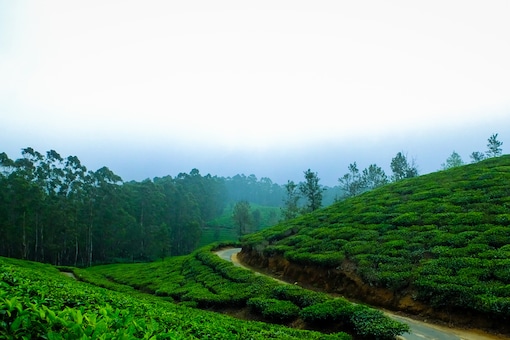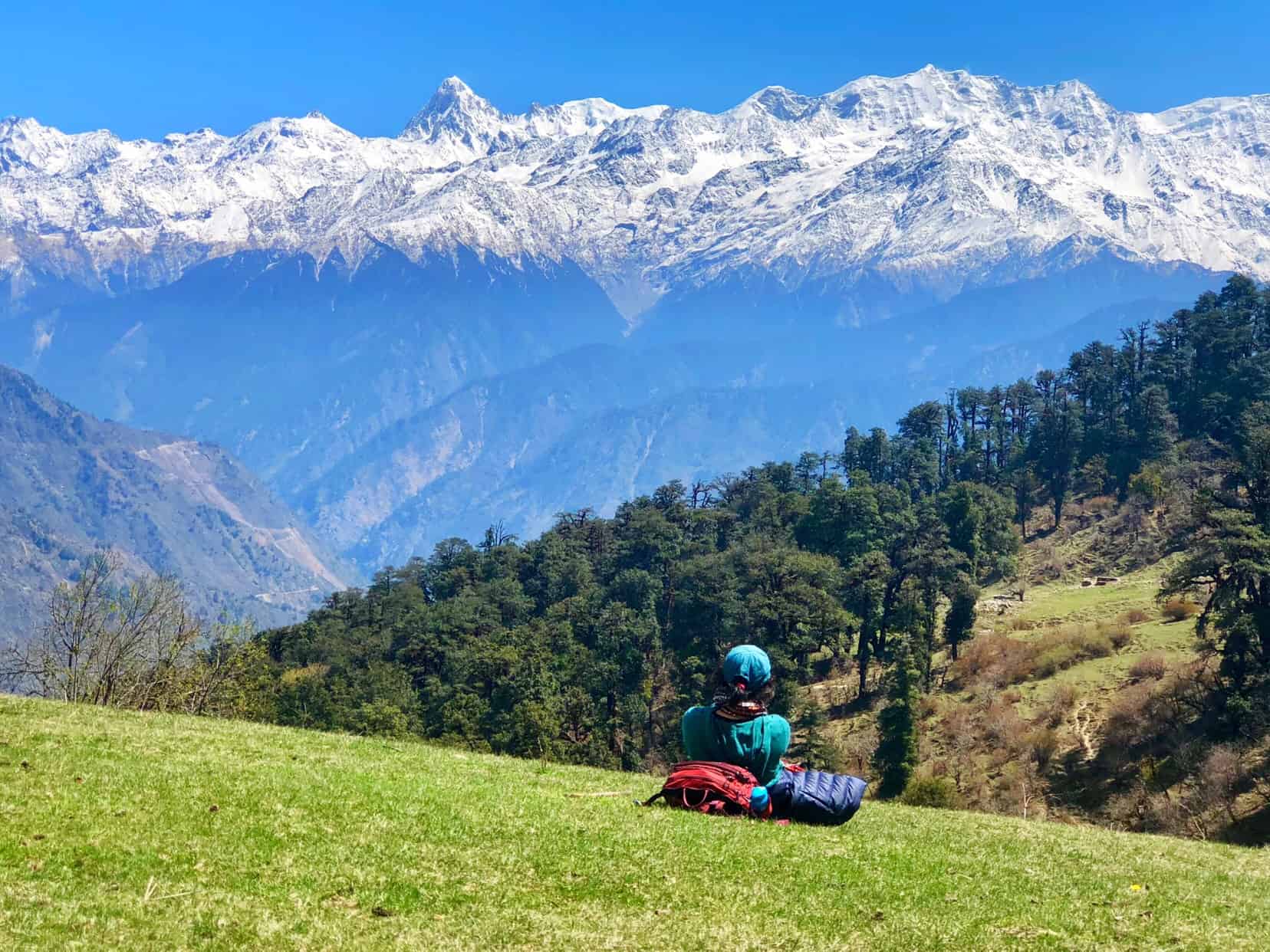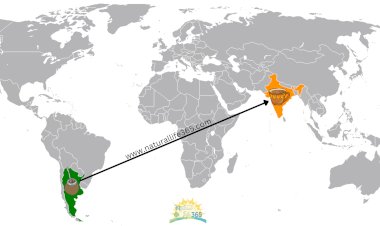A Beginner's Guide to Sustainable Travel in India: Exploring Eco-Friendly Destinations
Plan eco-friendly adventures with our guide to sustainable travel in India, featuring breathtaking nature destinations and tips.

India—land of vibrant cultures, diverse landscapes, and deep-rooted traditions. But behind the mesmerizing temples, bustling markets, and postcard-worthy mountains lies an urgent need: sustainable tourism. If you're a traveler who wants to explore the subcontinent while treading lightly on the planet, you’re in the right place.
This beginner's guide will walk you through how to practice sustainable tourism in India, introduce you to some of the best eco-friendly travel destinations in India, and give you practical tips for responsible travel and nature exploration. Let’s dive in—mindfully, of course.
What Is Sustainable Travel and Why Does It Matter?

Sustainable travel isn’t just a trendy buzzword—it’s a mindset. It means making choices that minimize your negative impact on the environment, economy, and local communities. In a country like India, where tourism can be both a blessing and a burden, responsible travel helps preserve delicate ecosystems, sustain local livelihoods, and keep cultural heritage alive.
In simpler terms? It’s about being a traveler, not a tourist.
Why India Is Perfect for Eco-Conscious Travelers
India offers a unique blend of ancient wisdom and modern eco-initiatives. From yoga retreats in the Himalayas to organic farms in Kerala, the country has steadily grown its portfolio of green experiences.
The rise of homestays, eco-lodges, and community-driven travel projects is making it easier than ever to explore India responsibly. Whether you’re a backpacker, a wellness seeker, or a nature lover, India welcomes you with open arms—and a bamboo straw in your smoothie.
Top Eco-Friendly Travel Destinations in India You’ll Fall in Love With
Let’s be honest—choosing where to go in India is both exciting and overwhelming. But when sustainability is your compass, these destinations rise to the top.
1. Spiti Valley, Himachal Pradesh – Remote and Responsible

High up in the Trans-Himalayas, Spiti Valley is a stark, stunning land of monasteries, canyons, and ancient traditions. Locals here have embraced eco-tourism with enthusiasm. Many homestays are solar-powered, plastic is discouraged, and traditional lifestyles are proudly preserved.
Tip: Visit with Ecosphere, a community-led initiative that promotes carbon-neutral travel in the valley.
2. Mawlynnong, Meghalaya – The Cleanest Village in Asia

Dubbed “God’s Own Garden,” Mawlynnong isn’t just clean—it’s a model for sustainable living. Locals compost waste, ban plastic, and maintain spotless streets. Add to that bamboo skywalks and lush forests, and you’ve got a magical, low-impact retreat.
Tip: Stay in a bamboo hut and travel during the off-season to avoid crowding the village.
3. Coorg, Karnataka—Organic Farms and Coffee Trails

Coorg, also known as Kodagu, is nestled in the Western Ghats—a UNESCO World Heritage Site. Known for its rolling coffee plantations, misty hills, and wildlife sanctuaries, Coorg is becoming a hotspot for eco-resorts and organic stays.
Tip: Book a stay at an eco-homestay that supports sustainable farming and biodiversity conservation.
4. Sundarbans, West Bengal—Where Wildlife Meets Conservation

If you're a nature lover with a wild side, Sundarbans—home to the majestic Royal Bengal Tiger—is for you. Community-based tourism is helping protect this fragile mangrove ecosystem while empowering local families.
Tip: Choose boat tours that follow strict wildlife guidelines and avoid plastic packaging.
5. Auroville, Tamil Nadu – A Global Experiment in Sustainable Living

This international township is a haven for conscious living. Auroville blends spirituality, art, and environmentalism. From handmade paper and solar kitchens to organic farms and zero-waste shops, everything here screams eco-friendly.
Tip: Take a workshop on permaculture or volunteer at one of the sustainable farms.
How to Practice Sustainable Tourism in India: Easy Steps for Conscious Travelers

Even if you're just getting started on your green travel journey, small changes can go a long way. Here's how to leave a lighter footprint while exploring India:
1. Say No to Plastic
Carry a reusable water bottle, cloth bags, and metal straws. Many Indian cities and eco-destinations have banned single-use plastics, but enforcement varies. Be your own eco-guardian.
2. Respect Local Cultures and Traditions
India is beautifully diverse. Dress modestly, ask before taking photos, and learn a few local phrases. Showing respect goes a long way in creating genuine, meaningful connections.
3. Support Local Businesses
Choose family-run guesthouses, local eateries, and handmade souvenirs. Your rupees have power—use them to uplift communities rather than large chains or mass tourism operators.
4. Offset Your Carbon Footprint
If you're flying domestically (or internationally), consider donating to a carbon offset program. Some Indian NGOs use contributions to plant trees or install solar panels in rural areas.
5. Travel Slow
India isn't a country to rush through. The slower you travel, the deeper you connect—and the lower your carbon emissions. Take trains, local buses, or even bicycles when you can.
Tips for Responsible Travel and Nature Exploration in India

Want to make your journey even more meaningful? Follow these nature-loving practices:
Leave No Trace
Whether you're trekking in the Himalayas or strolling along a beach in Goa, leave nature exactly as you found it. Don’t carve your name on trees or pick wildflowers.
Say No to Animal Exploitation
Avoid attractions that use animals for entertainment, like elephant rides or snake charmers. Instead, support ethical wildlife sanctuaries and rescue centers.
Choose Green Accommodations
Look for eco-certifications, like EarthCheck or the Ecotourism Society of India. These places often use solar energy, compost toilets, and harvested rainwater.
Embrace Mindful Experiences
Practice yoga, meditation, or Ayurveda in eco-friendly settings. Not only do these experiences nourish your soul, but they often support sustainable community projects.
Eco-Travel Essentials for India—Quick Checklist

Reusable Items
- Reusable water bottle (preferably with built-in filter)
- Cloth or canvas shopping bag
- Metal or bamboo straw
- Reusable cutlery (spoon, fork, knife, chopsticks)
- Reusable food container or tiffin box
- Travel mug or thermos
Eco-Friendly Toiletries
- Biodegradable soap and shampoo
- Solid shampoo and conditioner bars
- Bamboo toothbrush
- Natural toothpaste (no microbeads)
- Reef-safe sunscreen
- Menstrual cup or reusable pads
Smart Packing
- Quick-dry clothes (lightweight, ideal for washing on the go)
- Clothesline and biodegradable laundry detergent
- Reusable cloth napkin or hanky
- Minimal electronics (avoid overpacking gadgets)
- Reusable travel journal or digital notes app
Travel Tools
- Offline maps and local language guide
- Indian Railways app or IRCTC login (for train travel)
- Local SIM card with internet for navigation and eco-info
- Booking apps that highlight eco-stays (e.g., Ecobnb, BookDifferent)
- Power bank (solar-powered if possible)
Mindset Reminders
- Respect local customs and dress codes
- Avoid plastic whenever possible
- Support local and family-run businesses
- Ask before taking photos
- Take only memories, leave only footprints
Final Thoughts: Travel with Purpose, Return with Perspective
India has the power to awaken your senses, challenge your beliefs, and change how you see the world. But as a traveler, your role is more than just observer—you're a participant in a delicate dance between preservation and exploration.
By choosing eco-friendly travel destinations in India, learning how to practice sustainable tourism in India, and following tips for responsible travel and nature exploration, you’re helping write a new story for travel—one rooted in respect, balance, and conscious joy.
So go ahead—pack your curiosity, your open heart, and your reusable water bottle. India is waiting, and she loves mindful visitors.
If you value these free online resources provided by Natural Life 365, please consider supporting my website by sharing the blogs ![]()
DISCLAIMER:
Some of the links in this content may be affiliate links. This means that if you click on one of the links and make a purchase, I may receive a commission (at no extra charge to you). However, I only recommend products that I personally use and have tested myself. Also, understand that I have taken reasonable steps to ensure that the information on this content is accurate, but I cannot represent that the website(s) mentioned in this post are free from errors. Please, check the Affiliate Disclosure at the bottom of this website.










































